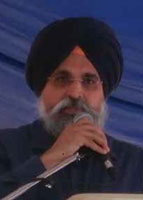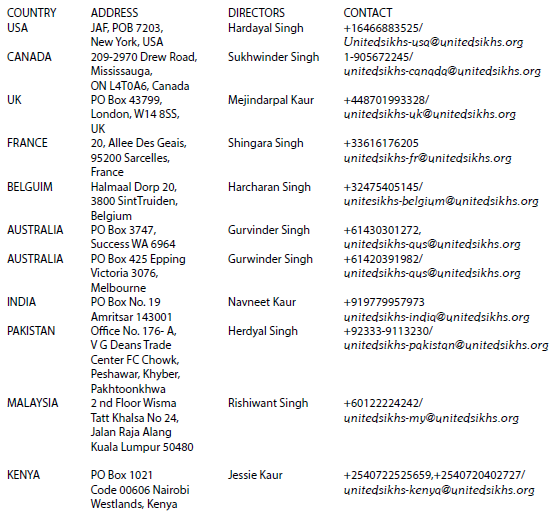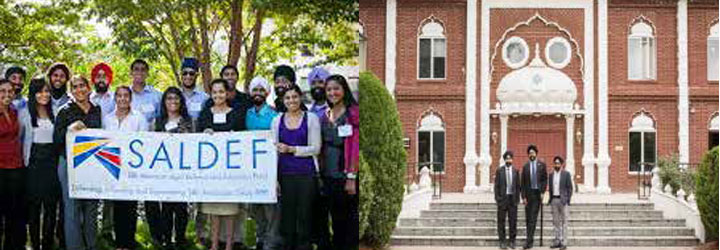“The Sikh Coalition’s work is carried out at the local, state and federal levels. We employ our Legal, Policy and Community Development programs, which are supported by our Media and Communications department. Our Legal Program primarily litigates matters that address bias and discrimination. These areas include school bullying, hate crimes, and high-impact cases of workplace discrimination. Our Policy Program works to ensure laws and administrative regulations embody fundamental human rights. And is then scaled to meet the needs of the Sikh community at the local, state and federal levels. Our Community Development Program works to foster civil engagement in order to promote local community empowerment. All of this work continues with the broader goal of educating Americans about the Sikh faith, community and traditions to combat bigotry and discrimination”.
In 2003, they hired their first staff member, a legal Director. The first law suit against the discrimination was filed against the New York Metro transit authority with the charge that a post-9/11 policy requiring Sikhs to brand their turbans with an MTA logo amounts to religious discrimination. This case was won by the Coalition. Over the past 15 years, the Sikh Coalition legal team has won numerous workplace discrimination cases against Fortune 500 employers and government agencies, while championing the rights of clients in cases of school bullying, racial profiling, discrimination and hate crimes. Their policy work has secured groundbreaking religious rights laws and dramatic policy improvements for how Sikh hate crimes are tracked by the FBI and how the TSA screens Sikh passengers at airports. Their community empowerment and education work has trained hundreds of Sikh advocates across the country who now stand on the frontlines for defending civil rights. This work has also transformed Sikh school bullying into a national policy issue, and ensured that Sikh history is taught accurately in the curricula of California, Texas, New York and New Jersey. The coalition then fought many cases against the hate crimes. Since then, the Sikh Coalition has transformed into the largest Sikh American advocacy and community development organization in the United States. It serves as a resource for all organizations and individuals as well as a point of contact for the Sikh people.
The coalition currently has sufficient staff and offices in New York City, California (Bay Area and Los Angeles), Washington D.C. and Chicago with over one hundred volunteer community advocates working to protect Sikh civil rights across the United States. Its different units work independently as well as jointly for several projects. For example in August 2017, the Los Angeles unit joined the Sangat by participating in National Day of Seva (selfless community service) to remember and honour the victims and survivors of the Oak Creek tragedy. In November 2017, The Sikh Coalition’s partnership with Sikh Lens and Chapman University organized an exhibition at Orange Country. This exhibition is a groundbreaking Sikh Project photography exhibition that previously reached nearly 20 million Americans. In December 2017 The Sikh Coalition organized Sikh Awareness Game for Sikh youth Basketball players in association with LA Clippers as a part of celebration of “Sikh Awareness and Appreciation Month,”. The special features of this program were a national anthem performance by a Sikh accompanied by a Sikh colour guard, and Punjabi halftime entertainment. The Coalition also associated in December 2017 with Congressional Asian Pacific American Caucus in organising a talk by Pardeep Kaleka and Arno Michaelis, co-founders of Serve2Unite, an organization dedicated to creating student leaders who build inclusive, compassionate, nonviolent climates in their schools and surrounding communities. Pardeep’s father, Satwant Singh Kaleka, was among six Americans who lost their lives when a neo-Nazi gunman attacked a Gurdwara (Sikh house of worship) in Oak Creek, Wisconsin on August 5, 2012. Arno is the author of My Life After Hate, which chronicles his involvement in the skinhead movement and his transformation into an advocate for a more welcoming society. Another awareness program about the Sikhs through a photo exhibition was organized by the Coalition in collaboration with the talented British photographers Amit and Naroop was organized at the Sandy Spring Museum from February 14-March 24, 2018. The exhibit, which launched to critical acclaim in 2016, includes 38 portraits of turbaned men and women that embody the diversity of the Sikh community and recognize the challenges and triumphs of what it means to be Sikh in the United States. The Sikh Coalition team consists of Board of Trustees, Advisory Board, Staff and Volunteers. The Board of Trustees is having S. Narinder Singh as the Chairperson and S. Prabhjot Singh, S. Harpreet Singh, S. Savneet Singh, Manpreet Kaur Singh, Manmeet Kaur and Suneet Kaur as the members. The contact details of the organization are National Office 50 Broad Street, Suite 504, New York, NY 10004 and contact number is 2126553095.






